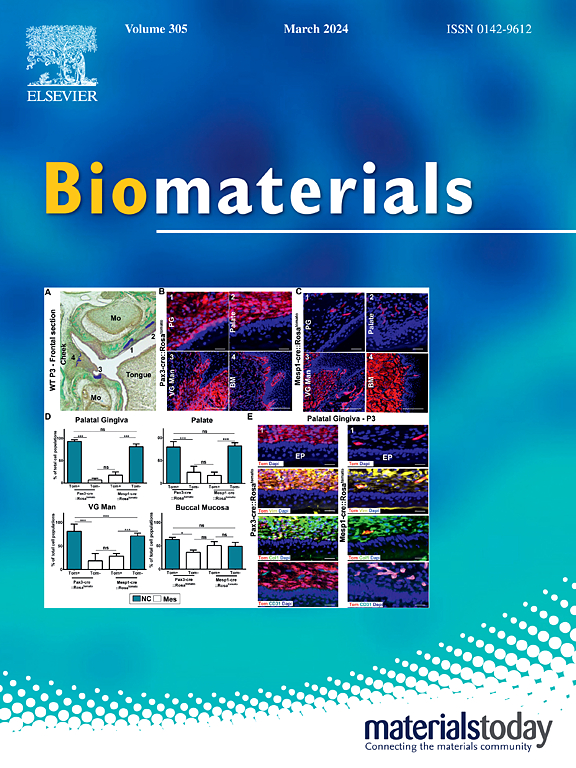Targeting lipid metabolism via nanomedicine: A prospective strategy for cancer therapy
IF 12.9
1区 医学
Q1 ENGINEERING, BIOMEDICAL
引用次数: 0
Abstract
Lipid metabolism has been increasingly recognized to play an influencing role in tumor initiation, progression, metastasis, and therapeutic drug resistance. Targeting lipid metabolic reprogramming represents a promising therapeutic strategy. Despite their structural complexity and poor targeting efficacy, lipid-metabolizing drugs, either used alone or in combination with chemotherapeutic agents, have been employed in clinical practice. The advent of nanotechnology offers new approaches to enhancing therapeutic effects, includingthe targeted delivery and integration of lipid metabolic reprogramming with chemotherapy, photodynamic therapy (PDT), and immunotherapy. The integrated nanoformulation, nanomedicine, could significantly advance the field of lipid metabolism therapy. In this review, we will briefly introduce the concept of cancer lipid metabolism reprogramming, then elaborate the latest advances in engineered nanomedicine for targeting lipid metabolism during cancer treatment, and finally provide our insights into future perspectives of nanomedicine for interference with lipid metabolism in the tumor microenvironment.
通过纳米药物靶向脂质代谢:癌症治疗的前瞻性策略。
脂质代谢在肿瘤的发生、发展、转移和治疗耐药过程中发挥着重要作用。靶向脂质代谢重编程是一种很有前途的治疗策略。尽管脂质代谢药物结构复杂,靶向性较差,但其无论是单独使用还是与化疗药物联合使用,都已被应用于临床。纳米技术的出现提供了增强治疗效果的新方法,包括靶向递送和脂质代谢重编程与化疗、光动力疗法(PDT)和免疫疗法的整合。综合纳米制剂,纳米药物,将在脂质代谢治疗领域取得重大进展。本文将简要介绍肿瘤脂质代谢重编程的概念,阐述针对肿瘤脂质代谢的工程纳米药物治疗的最新进展,并对纳米药物在肿瘤微环境中干扰脂质代谢的未来前景进行展望。
本文章由计算机程序翻译,如有差异,请以英文原文为准。
求助全文
约1分钟内获得全文
求助全文
来源期刊

Biomaterials
工程技术-材料科学:生物材料
CiteScore
26.00
自引率
2.90%
发文量
565
审稿时长
46 days
期刊介绍:
Biomaterials is an international journal covering the science and clinical application of biomaterials. A biomaterial is now defined as a substance that has been engineered to take a form which, alone or as part of a complex system, is used to direct, by control of interactions with components of living systems, the course of any therapeutic or diagnostic procedure. It is the aim of the journal to provide a peer-reviewed forum for the publication of original papers and authoritative review and opinion papers dealing with the most important issues facing the use of biomaterials in clinical practice. The scope of the journal covers the wide range of physical, biological and chemical sciences that underpin the design of biomaterials and the clinical disciplines in which they are used. These sciences include polymer synthesis and characterization, drug and gene vector design, the biology of the host response, immunology and toxicology and self assembly at the nanoscale. Clinical applications include the therapies of medical technology and regenerative medicine in all clinical disciplines, and diagnostic systems that reply on innovative contrast and sensing agents. The journal is relevant to areas such as cancer diagnosis and therapy, implantable devices, drug delivery systems, gene vectors, bionanotechnology and tissue engineering.
 求助内容:
求助内容: 应助结果提醒方式:
应助结果提醒方式:


